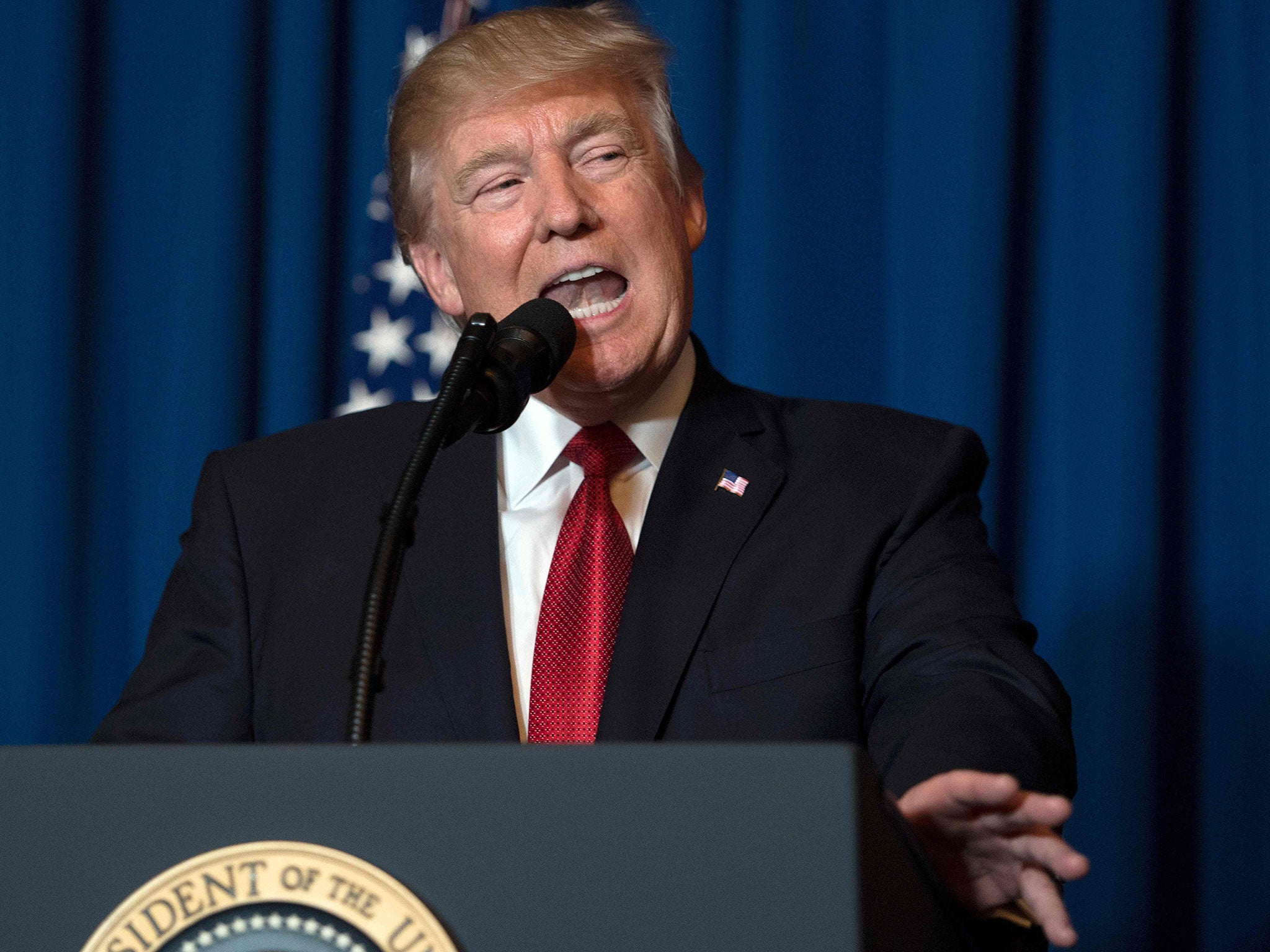Donald Trump's air strikes on Syria are largely symbolic - but symbolic actions have consequences
Analysis: The low death toll suggests Syria was warned - via Russia - the strikes were coming. But America's first direct military action against Assad raises more questions than it provides solutions

Your support helps us to tell the story
From reproductive rights to climate change to Big Tech, The Independent is on the ground when the story is developing. Whether it's investigating the financials of Elon Musk's pro-Trump PAC or producing our latest documentary, 'The A Word', which shines a light on the American women fighting for reproductive rights, we know how important it is to parse out the facts from the messaging.
At such a critical moment in US history, we need reporters on the ground. Your donation allows us to keep sending journalists to speak to both sides of the story.
The Independent is trusted by Americans across the entire political spectrum. And unlike many other quality news outlets, we choose not to lock Americans out of our reporting and analysis with paywalls. We believe quality journalism should be available to everyone, paid for by those who can afford it.
Your support makes all the difference.The 59 Tomahawk Cruise missiles fired from the USS Porter and USS Ross into the Sharyat airfield in western Homs could be seen as defining Donald Trump’s campaign declaration that he would do the “unexpected” in foreign policy, and that America’s enemies can expect swift retribution for acts of aggression.
But what has unfolded also illustrates the contradictions and confusion which have characterised the new administration. On this occasion it starts with the fundamental question of who exactly is the enemy; who is running foreign policy in Washington, and just how effective and even just how unexpected the strikes were by the time they took place in the early hours of the morning.
Follow the latest updates on the American attack on Syria in our live blog
Just a few days ago, US officials were confiding that regime change in Damascus was not something that Washington was contemplating, and Isis remained the target. Last night Rex Tillerson, the Secretary of State, said that Bashar al-Assad should no longer stay in power. Mr Tillerson went on to insist that “there were no discussions or prior contacts, nor had there been any since the attack with Moscow”, the Syrian leader’s chief supporter. But this was directly contradicted by the Pentagon which stressed that “multiple conversations” had taken place with the Russians on Thursday. “There are Russians at the base and we took extraordinary precautions to not target areas where the Russians are,” said Captain Jeff Davis.
All the indications are that it was indeed the case that the Kremlin had been kept informed – through the “deconfliction line” from the US military facility at the al-Udeid air base in Qatar set up to avert accidental clashes between the American and Russian militaries in Syria – about the assault. Mr Tillerson, supposedly Mr Trump’s foreign policy chief, appears to have been kept uninformed about this.
There are also strong indications that the Russians passed on information about the impending strikes to the Syrian regime: senior officers had left the base before they took place and some even had time to move their families out of the area. The reported number of casualties, six soldiers dead, is remarkably light for such a barrage.
This raises the claim that the attack was largely symbolic. The hopes expressed by the Syrian opposition that the strikes are the first of many are unlikely to be fulfilled. The symbolism may not just be confined to Syria. Xi Jinping is being hosted by Mr Trump at the Mar-a-Lago resort. Beijing is North Korea’s only ally and the Chinese President will be asked forcefully, the US administration has said, to halt Pyongyang’s sabre rattling with missile launches. The Syrian air strikes will, Washington is likely to hope, act as a deterrent.
But there are laws of unintended consequences to symbolic acts. Moscow has announced that it is suspending the deconfliction line in protest at the air strikes. This is likely to be temporary, but in the meantime there remains the possibility of an inadvertent clash between American and Russia. The Russians have installed advanced surface-to-air defences in Syria with both sides busy in the skies above.
What has happened will also raise questions about the next phase of diplomacy between the US and Russia. Mr Tillerson is due to be in Moscow next Thursday – preceded by Boris Johnson earlier in the week --- and the visit was being viewed as setting the framework for future relations. But the seeming lack of the Secretary of State’s knowledge about liaison with the Kremlin over the Syrian strikes has reinforced doubts about just how much of a stewardship he is allowed over America’s foreign policy.
Join our commenting forum
Join thought-provoking conversations, follow other Independent readers and see their replies
Comments